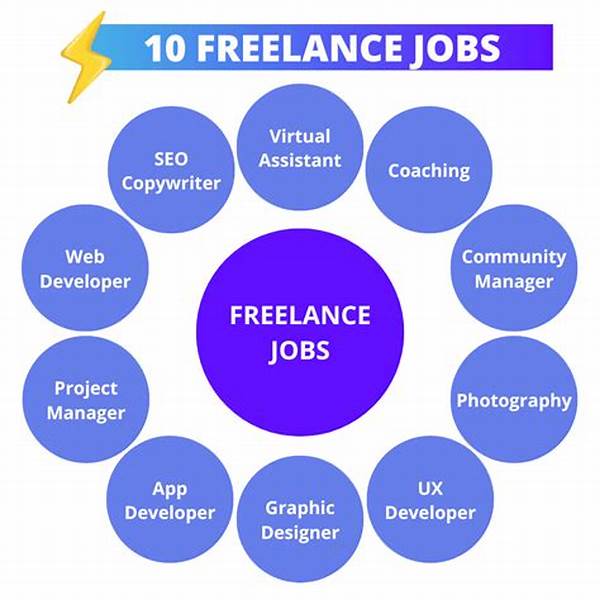
Micro Freelancing Platforms
In today’s fast-paced digital economy, micro freelancing platforms have emerged as a transformative trend, offering unparalleled opportunities for both freelancers and clients. Imagine a world where skilled individuals can offer their services with just a few clicks, and businesses can access specialized talents without the hassle of prolonged hiring processes. This isn’t merely a dream but a vibrant reality, as people from diverse backgrounds harness these platforms to cater to their interests while earning an income. Micro freelancing platforms allow individuals to provide specific, short-term services — or “gigs” — that are in high demand, from graphic design to copywriting and everything in between.
Read More : Why Upwork And Fiverr Still Dominate Freelancing
This revolution not only democratizes opportunities but also fuels innovation across industries. Entrepreneurs and companies seeking niche skills they don’t possess internally can now reach a global pool of talent, ensuring high-quality results delivered efficiently and cost-effectively. For freelancers, these platforms open up a broad spectrum of possibilities, allowing them to capitalise on their unique skills, determine their work hours, and choose clients that align with their professional goals. The flexibility and autonomy they offer is unmatched compared to traditional employment models.
However, as with any revolutionary model, there are challenges. Freelancers may face fierce competition, wage fluctuations, and the need for constant self-marketing. Clients, on the other hand, must navigate through millions of profiles to find the right fit. Yet, the advantages often outweigh the downsides, as both parties continually adapt and evolve to optimize this dynamic environment.
Benefits of Micro Freelancing Platforms
Micro freelancing platforms not only serve as conduits for connection but as incubators for extraordinary professional relationships. They dissolve geographic boundaries, enabling cross-cultural exchanges and collaborations like never before. The gig economy, powered by these platforms, is projected to grow exponentially, with industry estimates suggesting that by 2025, up to 50% of the workforce could be freelance.
—
Discussion: The Impact of Micro Freelancing Platforms
The rise of micro freelancing platforms signifies profound shifts in employment and work dynamics. Online gig platforms like Fiverr, Upwork, and Freelancer.com are not just tools but ecosystems fostering diverse opportunities. These platforms empower freelancers to market skills ranging from software development to creative writing and everything in between. Despite the convenience these platforms offer, one must delve deeper to understand their multifaceted impact on the workforce and economy.
Economics Behind the Platforms
On an economic level, micro freelancing platforms have driven substantial changes. They have facilitated a new workforce model that fosters entrepreneurship, enabling individuals to transcend traditional employment paths and venture into business ownership. By allowing freelancers to set their prices, negotiate contracts, and build professional portfolios, they stimulate economic growth and personal empowerment.
Conversely, the platforms allow businesses, especially small and medium enterprises, to access skilled talent without the financial burden of full-time employments, such as benefits and long-term commitments. The ability to employ specific skills for distinct projects can reduce overhead costs significantly. Additionally, companies can scale their workforce up or down based on project requirements, allowing for greater agility in an ever-changing market.
Challenges and Opportunities
Nonetheless, the proliferation of micro freelancing platforms is not without challenges. Freelancers often work without traditional employment benefits like health insurance, retirement plans, or paid leave, which poses significant personal risks. Furthermore, the fierce competition can sometimes commoditize services, pushing freelancers into a race to the bottom in terms of pricing. There is also the issue of job security; gig work can be unpredictable, leading to income instability.
Yet, these platforms are ever-evolving to address these issues. Newer platforms engage in initiatives to educate and upskill freelancers, helping them remain competitive and command higher fees for their services. Meanwhile, innovative insurance products and cooperative effort models are emerging, offering benefit packages tailored to the needs of freelancers. These solutions indicate a growing recognition of the unique challenges posed by gig work and a collective push towards sustainable practices.
The Future of Work
With technology advancing at a rapid pace, the future of work will undoubtedly be shaped by micro freelancing platforms. The gig economy’s flexibility encourages lifelong learning and adaptability, attributes that are becoming increasingly valuable in the modern workplace. In the coming years, hybrid models that blend traditional employment with freelancing elements might become prevalent, offering the best of both worlds. As these shifts continue, stakeholders across industries must collaborate to create supportive environments that nurture growth for freelancers and businesses alike.
—
Micro Freelancing Platforms Discussions
Explore the following discussions on micro freelancing platforms:
The Dynamics of Micro Freelancing Platforms
Micro freelancing platforms have truly altered the employment landscape, evolving into dynamic ecosystems that not only provide jobs but allow for immense professional growth. Understanding the complexities of these platforms, from their economic impacts to the personal challenges faced by freelancers, equips us with the knowledge to better navigate and leverage this burgeoning gig economy effectively.
Freelancing Success Stories
Many freelancers today can proudly share success stories where they harnessed these platforms to build thriving careers. Take Johnny, a graphic designer who, after losing his 9-to-5 job, discovered Upwork. Within months, Johnny not only rebuilt his clientele but tripled his previous salary. Stories like Johnny’s echo across the globe, illustrating how micro freelancing platforms serve as robust frameworks for personal empowerment and financial growth.
—
Illustrations of Micro Freelancing Platforms
Consider these examples as you delve deeper into the world of micro freelancing platforms:
The Value of Micro Freelancing Platforms
Micro freelancing platforms have undeniably changed the employment landscape, offering substantial advantages for freelancers and businesses alike. These platforms enable an unprecedented level of flexibility and growth, allowing freelancers to tap into global markets and clients to access specialized expertise with ease.
Tailoring Solutions for Tomorrow
Freelancing, suited for the digital age, encourages autonomy in work and life, pushing traditional boundaries. As platforms continue to evolve, so too do the opportunities for freelancers and businesses. Innovations in technology, project management, and digital interactions will further streamline these platforms, making them an indispensable resource in an increasingly digital world.
Embrace the future, where the next big gig awaits just a click away!


